Toyota-United with new faces and new goals
Toyota-United finished their third annual training camp held at the Wine Valley Inn in historical...
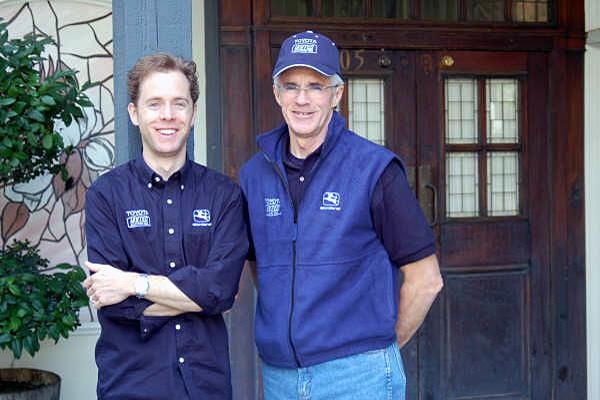
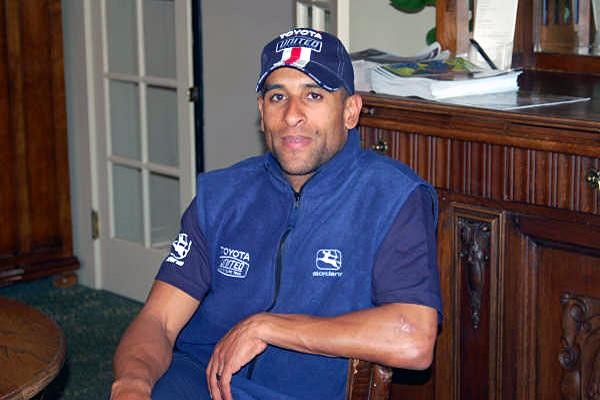
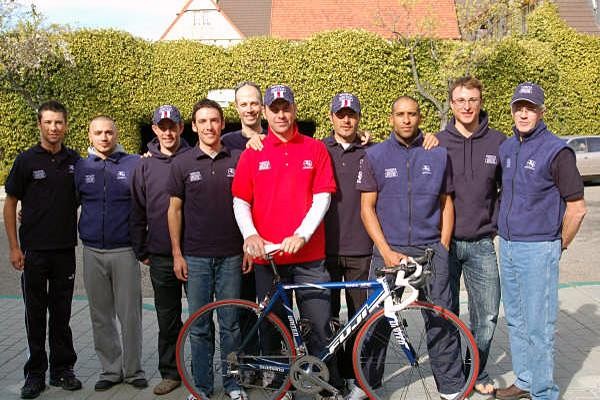

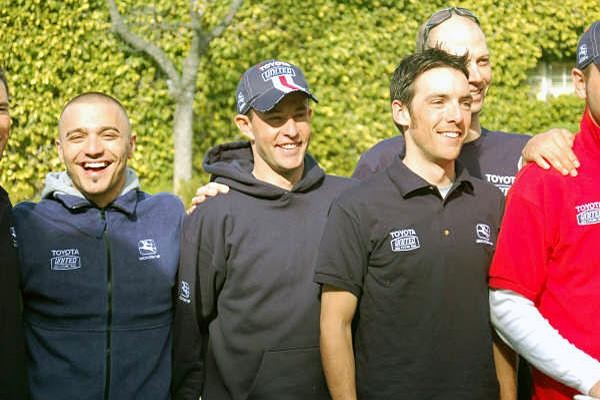

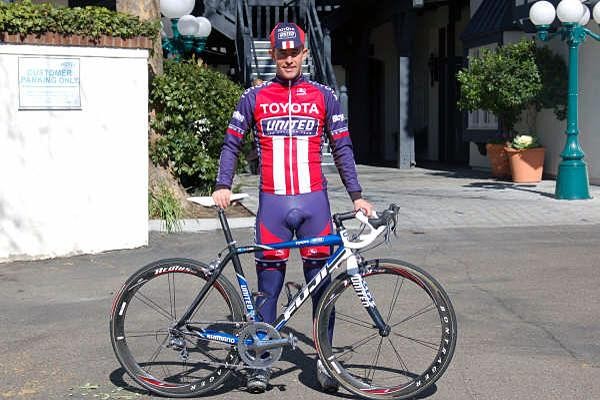
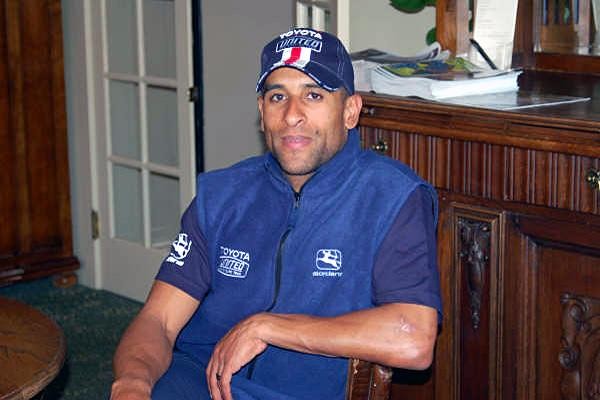
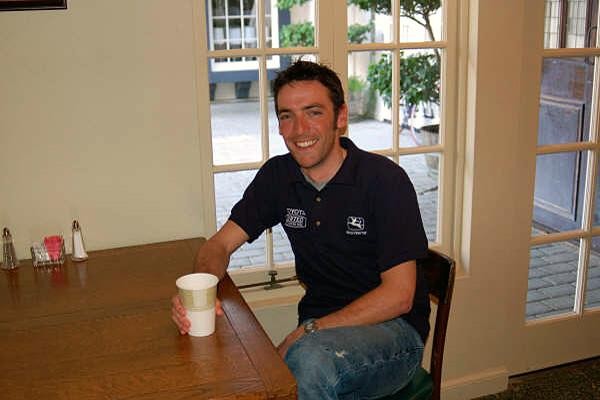
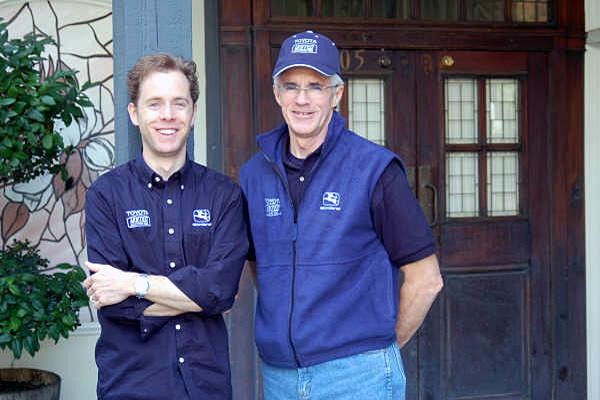
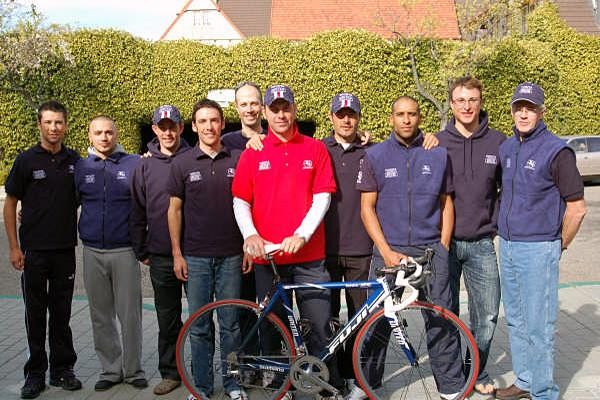
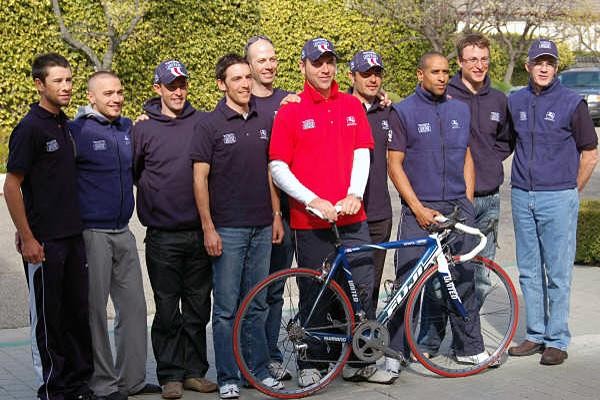
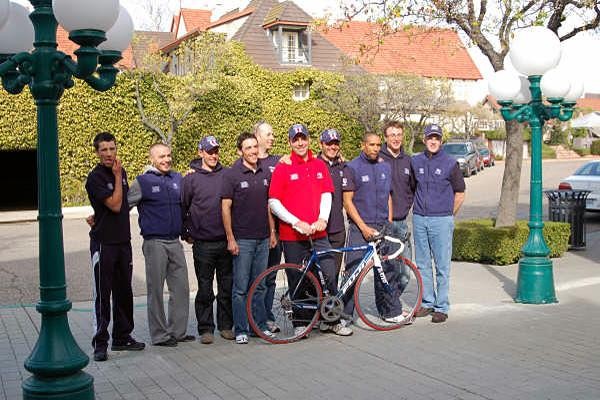
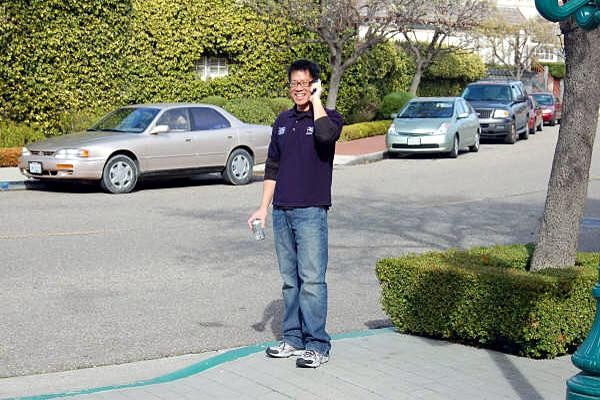
Tales from the peloton, February 21, 2008
Toyota-United finished their third annual training camp held at the Wine Valley Inn in historical downtown Solvang, California. Not even rainy days could dampen the spirit of the revamped squad, outfitted in their rendition of the star spangled banner, symbolic of one of the strongest teams to currently compete on American soil. However, with their traditional kit comes a fresh and inspiring mentality initiated by the team's two latest signings, Director Sportif Len Pettyjohn and his first-hand assistant Scott Moninger. The dynamic duo spoke with Cyclingnews' Kirsten Robbins about collectively commanding a large-scale team. With over two decades of bike racing experience, they are offering a new approach to the professional team's previous direction, aiming towards the better health and physical well being of each rider to encourage further success.
The high profile team underwent several management changes from its start in 2006 to the end of the 2007 season. Harm Jansen retired and Frankie Andreu was let go by the team. The team's owner, Sean Tucker, is motivated for a fresh start by hiring Len Pettyjohn, who brought with him one of America's most decorated cyclists, Scott Moninger. "Scott and Len have been a duo for about twenty years and they have a great working relationship," said Tucker, touching on the lengthy history between the two directors.
"I've been working with them for the last four months and we are off to a good start. They are both very professional and Scott is doing an excellent job in terms of his transition from being a rider to a director. You'd think he'd worked at IBM before because he's so professional and knows what to say, what not to say and I think the guys have a lot of respect for both of them. I'm watching it all happen closely and it's going smoothly."
Years of working in the cycling industry, from directing some of the top US-based teams, including the former Coors Light squad in the early 1990's, to managing the CyberBike indoor race program, give Pettyjohn a good background for management. Furthermore, having promoted well known cycling events like the former Saturn Classics equip him with the leadership and marketing skills needed to direct Toyota-United.
The 66 year-old accepted the role under the condition that he would have the right to pick the riders and staff and his first selection included Moninger, a former athlete and long time friend. "Scott, who just finished racing, knows every metre of every course we are going to race on and knows every rider and their characteristics," continued Tucker. "So, we now have Len with his deep knowledge and experience combined with Scott, who is up to date on the racing side – they're like ying and yang."
Moninger's offer to help direct the Toyota-United squad presented itself at the end of 2007, half way through his two-year contract to continue racing for Team BMC. According to Moninger, the decision to retire one year early tipped the balance based on a number of reasons. "Being a bike racer for the last twenty-five years and then being behind the wheel of a car is a big adjustment, but at the same time, as passionate as I was about cycling, it's not something that I was able to continue doing at that level. I'm forty-one years old and I reached a point where I knew in my heart that I wasn't able to continue to commit the time and energy to being at the highest level of bike racing. So it was time for a change and this opportunity opened up."
The latest race content, interviews, features, reviews and expert buying guides, direct to your inbox!
Pettyjohn acknowledged that his prized deputy still had plenty of heart and legs left in him to continue racing. However, the opportunity to make a smooth transition into a full time career whilst still tied to cycling put him in a unique position. "Moninger is smart," said Pettyjohn, regarding his twenty-five years of bike racing experience.
"Everybody thinks you want to be the strongest guy as your director but my point is that you never want the strongest guy, you want the smartest guy; a guy who knows how to win a race even though he can't overpower people. The point is that Moninger won two hundred and seventy races, not by overpowering people, but by being in the right place at the right time and reading the race and that's the most important thing. There were a lot of strong guys at the races, but Scott is a very smart guy who pays attention and learns fast. I'm confident he will learn the role of directing fast and I wanted to be here to work with him and help him do that."
The Wine Valley Inn, Solvang
The team's ten core riders from last year include Heath Blackgrove, Ivan Dominguez, Ivan Stevic, Justin England, Sean Sullivan, Jose Manuel Garcia, Chris Baldwin, Caleb Manion and Henk Vogels. Four key additional players enhance the team's overall strength and variability in the peloton as well as providing enough bodies to rotate through a hefty North American race schedule. According to Pettyjohn, Canadian all rounder Dominique Rollin, Australia's sprinter Hilton Clarke, his brother Jonny and GC contender Ben Day provide additional cards to play and increased the depth that they lacked in the previous year due to injury and illness.
All fourteen riders along with staff and equipment spent ten days in North America's training hotspot of Solvang, California. The full team stayed at the Wine Valley Inn & Cottages, where they enjoyed the amenities of the quaint Danish town and its surrounding scenic and mountainous back roads. Though they experienced undesirable weather conditions of rain and high winds, according to Moninger that did not stop the team from doing what needed to be done to prepare for the start of the season. "The camp, if nothing else, was great for getting the team chemistry and bonding going," said Moninger. "As it worked out we had some inside activities scheduled anyway; inside photos, fitness testing, administrative stuff, so the camp worked out well, even with the rain. The rain forced them to be inside but that's where we needed them anyway. We put our inside hours to good use. People were opening up and we have all become very comfortable with one another."
Doctor Neal Henderson from Boulder Sports Medicine arrived to meet the team with his colleague Adam St. Pierre. They wanted to test the riders' fitness levels and pin point areas of strength and weakness. Such tests included lactate threshold tests, conducted via five-minute and one-minute sprint power tests. "The fact is there are several systems that all riders need to work on to improve on their ability and most of them only work on the areas they are already good at," said Pettyjohn. "We also know from these profiles which riders are going very well for the upcoming Tour of California and other early season races and we know the potential that each rider has – without saying what the test numbers were, I want to say that there are riders in our group that are going to surprise everyone."
Power numbers aside, the Tour of California team was selected as early as October of last year and the formula was simple; all riders from the southern hemisphere with the exception of Dominguez and Rollin, who train in the warm California climate. "We chose the riders living in the warm climate for the Tour of California because living in a cold climate is a big disadvantage for early season races for two reasons," elaborated Pettyjohn on his team selection. "It's hard to get quality miles in with consistency and then it's cold, so the riders can't recover. Riders burn up a lot of energy trying to stay warm. The point is they aren't gaining the level of fitness that they need to be good in the early season races. It was hard to convince these guys and I had to tell them they couldn't compete in the Tour of California because they are all so eager and hungry to race. So, our southern Hemisphere guys started their base back in November to be ready for early season."
The team's original sprinter, Ivan Dominguez, won the final stage of the 2007 Tour of California in Redondo Beach. He noted that he is pleased to have other sprinters like Henk Vogels, Hilton Clarke and Dominique Rollin to back him up in the effort to gain another stage win this year. According to Dominguez, the event has been getting harder every year, with this year leaving only three opportunities for a field sprint. "I'm trying to get in as much racing as I can because the Tour of California is not easy and every year they are making it harder and harder.
"Last year I was the only sprinter, but I knew if I wasn't there than there would have been Stevic and Vogels to make up for it," said Dominguez. "This year, with the addition of Dominique and Hilton, the pressure is a little bit less on me. I know that if something happens to me during the race that they are going to be there. Also, there is less pressure on the team to hold the field together for a bunch sprint, because we have a lot more depth between guys who can sprint and guys who like to be aggressive and go into breaks. I can't wait to start the season; it's going to be so much better. Plus, it's so much better having those new guys on our side, rather than against us."
Less pressure; more results
With the new direction comes a fresh mentality that is designed to benefit the riders' mental and physical well-being. After examining the team's distressful moments apparent during the last half of the 2007 season, Pettyjohn and Moninger made several changes to the riders' schedules. This will promote fresh minds and legs at every race from season start to season end.
The first change in the schedule comes with a decline in focus on the entire NRC series, while increasing their attention on select major events that will include some NRC, ProTour and UCI events, along with races that are not on the calendar. "The guys know how to race very well," said Pettyjohn. "Last year they were absolutely handicapped with chasing the NRC points. But I feel that if a team is winning races than that's what really counts. The NRC is nice but it is a very focused industry standard. The real publicity value for marketing is mainstream media, by winning all races. We want to pick good races to win and not chase the NRC.
The second aspect of the fresh start is a general caring for the rider's well being. They are each scheduled to compete in a maximum of forty-five races and their schedules have been adjusted to focus on blocks of racing followed by blocks of ‘home and recovery' time to keep the riders physically and mentally fresh. "The guys want to race more but after looking at the team last year they came out of the box really fast, winning early season races, then they platitude and then they went down hill because they were over loaded, over raced, over trained and tired physically and mentally," said Pettyjohn. "When you get into that routine you don't even realise that you're tired because you feel like that all the time."
"So our goal is to be fresh," continued Pettyjohn. "The point is, the mentality has changed. It used to be that guys raced to get fit and stay on top form, but you can only have one major peak and one secondary peak to be at your best. We want our guys to be fresh, stay home, do the forty-five races, rotate through and have guys who are ready to win all the time."
According to Pettyjohn the revised racing schedule has been well received by the riders, because it places less pressure over the season while allowing the team to race more on the aggressive side and less on the defensive side. "On race day, I speak to every rider individually, to talk about what went on in the race, because if you talk to seven different riders you are going to get seven different opinions. Then you piece the race together by talking it over in the group and it is all a learning process."
For the full roster, see the Cyclingnews teams database.
